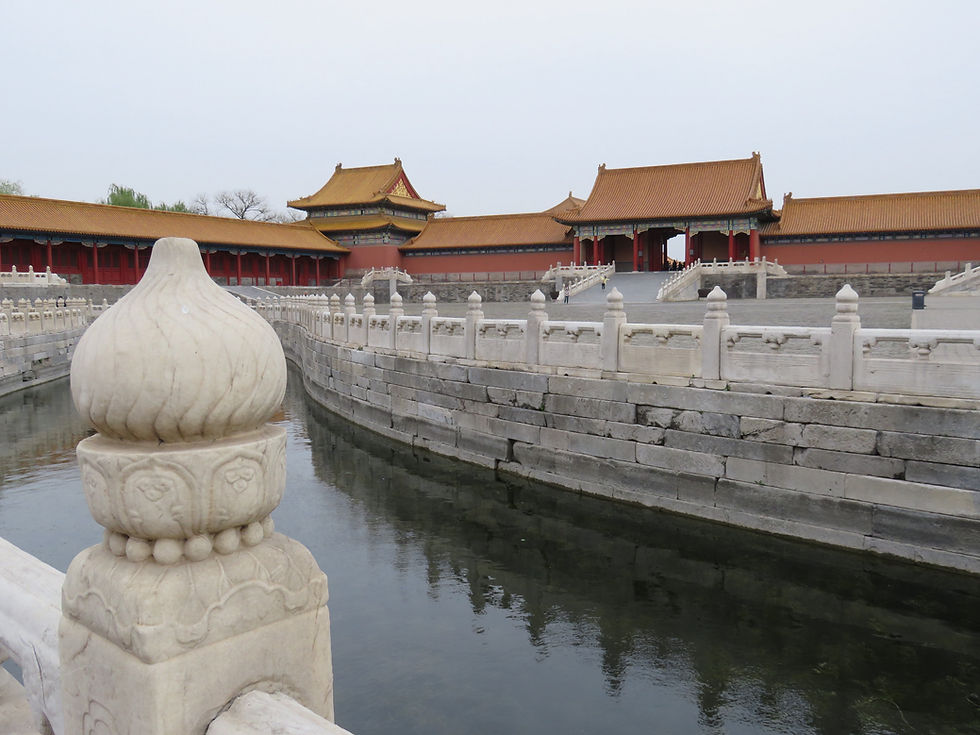
China is an old civilization. As a people. As a place. As an idea. Even setting aside the pre-historical Xia Dynasty, documented Chinese history stretches back more than three-and-one-half millennia into the far past. China the place has evolved over those many centuries, sometimes a smaller place located in the southern and eastern parts of what we call China today and sometimes larger to encompass what we call the China of today. There has been significant turmoil throughout China’s long history. There have almost always been rebellions against the leading ruler somewhere in the land. And what was controlled and considered China was at different times either only a portion of a greater whole or a larger area filled with many groups that simultaneously claimed the same mandate over the same lands.
What about China as a people and as an idea? It seems logical that the native Chinese would claim to represent themselves and want to promote their culture and society. But why was it so important for outsiders — Jurchens, Mongols, and Manchus, to want to control and represent China? Yes, conquest is a stable constant in the course of human history, but those who conquered China throughout history have more often than not taken significant pains to adapt to and adopt many of the traditional Chinese customs, language, and the mantle of representing the celestial empire. Thus, the conquerors became more like the Chinese than the Chinese became of the conquerors.
There must then be something special about this mantle that is the idea of China. It has always had an allure far beyond the boundaries of whatever China the place was at specific times. The allure was for art and industry, for sophistication and commerce, for riches and power. The border peoples to the north (the same three mentioned above) had the clearest desires and acted upon them repeatedly. The Jin, Yuan, and Qing Dynasties were the result of the expression of their desires, efforts, and accomplishments. For the last several centuries, the West has also wanted to reach and explore the mysterious East. While a portion of this desire might in part have been simply to satisfy curiosity of the exotic, the West’s desire was more often to obtain resources, promote commerce, proselytize Christian faith, and if need be, conquer. China has seemingly always been the grand prize sought after by many of the world’s other civilizations.
The Chinese throughout much of their history have recognized that they were the prize. For so long this took the form of just knowing in their collective psyche as a people and place that they were the Middle Kingdom, the center and pinnacle of human existence. They had longevity as a civilization. They had culture. They had money, prestige, and power. Everyone outside of China was a barbarian, someone not Chinese, someone who did not innately benefit from the mantle that was to be Chinese. The Chinese did not need to promote their authority abroad, though they did do so with incredible success for a short period early in the Ming Dynasty with the ocean voyages of Admiral Zheng He and his treasure fleet. Mostly, though, other states came to them. The tribute system was the result. Representatives of foreign lands in Asia brought tribute to China and recognized and accepted her suzerainty in exchange for (often great) favor and protection from the Court. The West came calling in the eighteenth century, but these representatives were cut from a quite different cloth. They expected more. They expected to be treated as equals (if not superiors). World views were polar opposites. This eventually led to tension, misunderstanding, and war.
As a general statement, the Chinese in the People’s Republic of China in the early decades of this new twenty-first century are once again extremely proud of their history, their culture, their growing place and clout in the world. After particularly turbulent nineteenth and twentieth centuries, there is once again a sense of confidence, of a brighter tomorrow reclaiming the long lineage of their great history. This renewed sense of self continues to be based on philosophical, social, political, and economic foundations that are not those of the predominant world framework and mindset of the last century. These foundations are not Western. A growing clash of civilizations is the result. And for good and bad, the past is often prologue to the present.
China today is beset by internal and external contests, contradictions, and strife. The society inside China seventy years after the Communist Party took control and after four decades of staggering economic growth is not monolithic. Nations outside of China in our time are also undergoing widespread shifts in ideas, desires, and expressions of power. China as an idea is still a mantle. By sheer numbers and longevity and, now, economic success and clout, the world runs through China. The main questions of our time are how will the world interact with this old civilization and how will this old civilization interact with the world. The stakes are enormous.
Comments